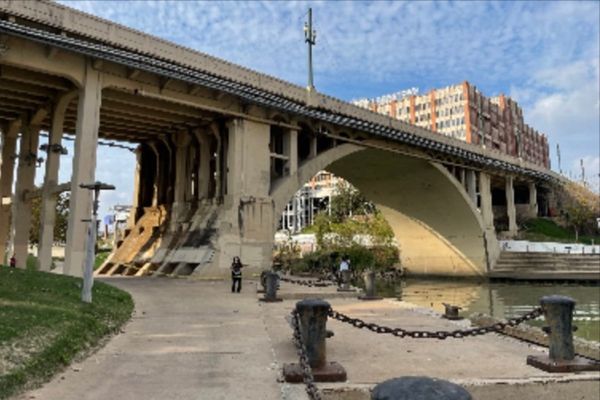
On Sunday morning, Catherine and Jane will kneel together before the priest at their church to receive a simple prayer of blessing. At the end of the service, the congregation at St John the Baptist in Felixstowe will raise a glass of bubbly instead of the usual cup of tea.
Catherine and Jane will be one of the first same-sex couples to be officially blessed in the Church of England after eight years of debate – always impassioned, often rancorous – in the C of E’s ruling body, the General Synod, and decades of division in the wider church.
This week, C of E bishops announced that clergy could voluntarily use special “prayers of love and faith” from Sunday. It is a significant moment, but not an end to arguments and campaigning. Progressive Christians will continue to demand full equality, including church weddings for same-sex couples; conservatives will continue to insist on traditional biblical teaching that marriage is a lifelong union between a man and a woman.
“It’s been a long journey to get where we are,” said Rev Andrew Dotchin, the parish priest at St John’s. “Hopefully, the prayers of love and faith will encourage those who have doubts to ask: ‘What was the worry all about? Why did we ever think this should be stopped?’”
Bitter battles had earlier been fought over female priests and bishops, and whether divorced people could remarry in church, he said. Now both issues were settled and overwhelmingly accepted.
Paul Williams, the bishop of Southwell and Nottingham, is among those refusing to accept the C of E’s small step this weekend. He told clergy in his diocese: “As your bishop, I simply cannot advise you to use prayers that indicate a departure from the clear teaching of the C of E.”
Rob Munro, the bishop of Ebbsfleet, a “flying bishop” overseeing churches that object to female priests, was more explicit in his letter to clergy: “Do not use the prayers. Their use is divisive, their legal status is questionable, the implications of their use will confuse clear biblical teaching.”
Rev Canon John Dunnett, the director of the Church of England Evangelical Council, said: “A line has been crossed, which we hoped and prayed would not happen.” An alliance of former and current vicars at the highly influential church, Holy Trinity Brompton, appealed to bishops not to authorise the prayers.
The move was welcomed by the Campaign for Equal Marriage in the Church of England, albeit as “only a small step towards the full equality, dignity and respect that LGBT+ people and their relationships deserve”.
Rev Nigel Pietroni, the campaign’s chair, said: “There remains much more work to be done, not least for clergy to be permitted to marry their same-sex partner.
“We hope these prayers … will help to change the culture within the church, showing that there is nothing to fear from celebrating the love of any two people before God.”
Jayne Ozanne, a prominent campaigner for LGBT+ equality in the C of E, said: “There will be many faithful LGBT+ Anglicans who will be grateful for this small crumb of progress. Sadly, however, it won’t stop the abuse of LGBT Christians within the Church of England, which is determined to continue to treat us as second class.
“To be honest, most LGBT+ Christian couples I know want a church wedding, so my advice is to steer clear of the established church altogether.”
Next year, the C of E is to start offering “experimental” standalone services of blessings for same-sex couples that will look and feel very similar to a church wedding.
Catherine and Jane, both ordained priests and in a civil partnership, will receive their blessing during the traditional Sunday morning communion service at St John’s. The vast red brick Victorian church will be filled with the sound of organ music and Christmas carols, and a gay pride flag will fly outside, as it does most days.
“Their love helps them to be more faithful Christians, and their love helps other people to understand that God is generous and no one is left outside,” said Dotchin. “Sunday’s blessing will be a celebration of that.”







